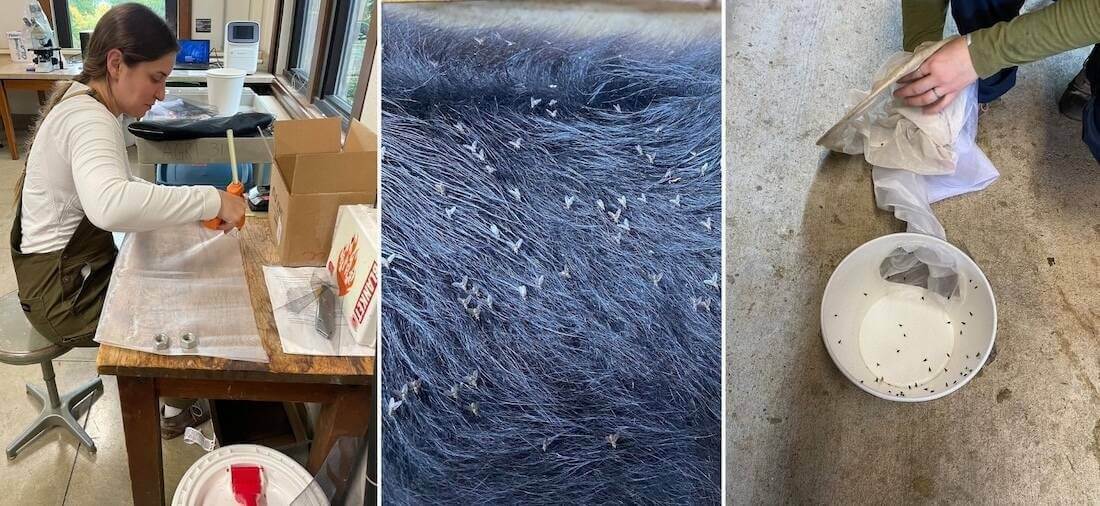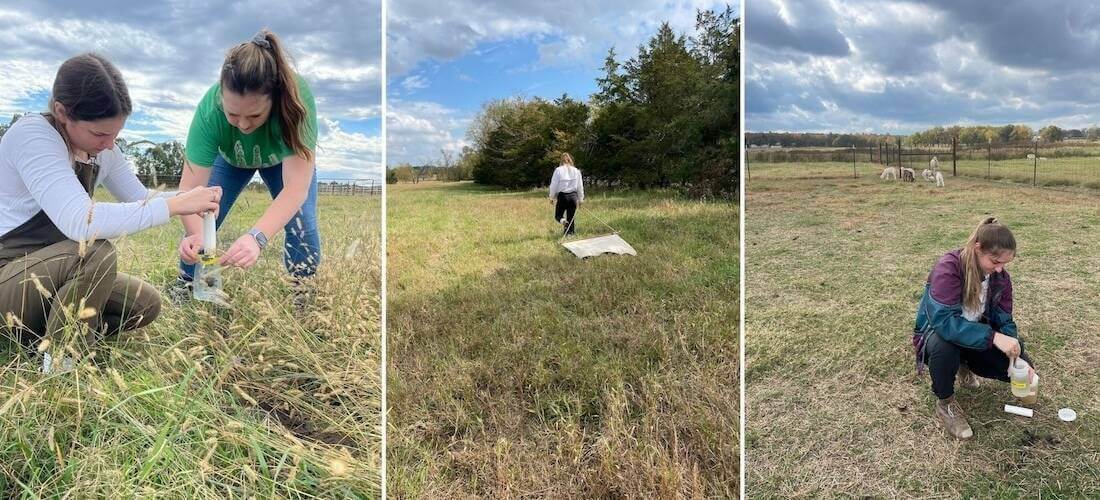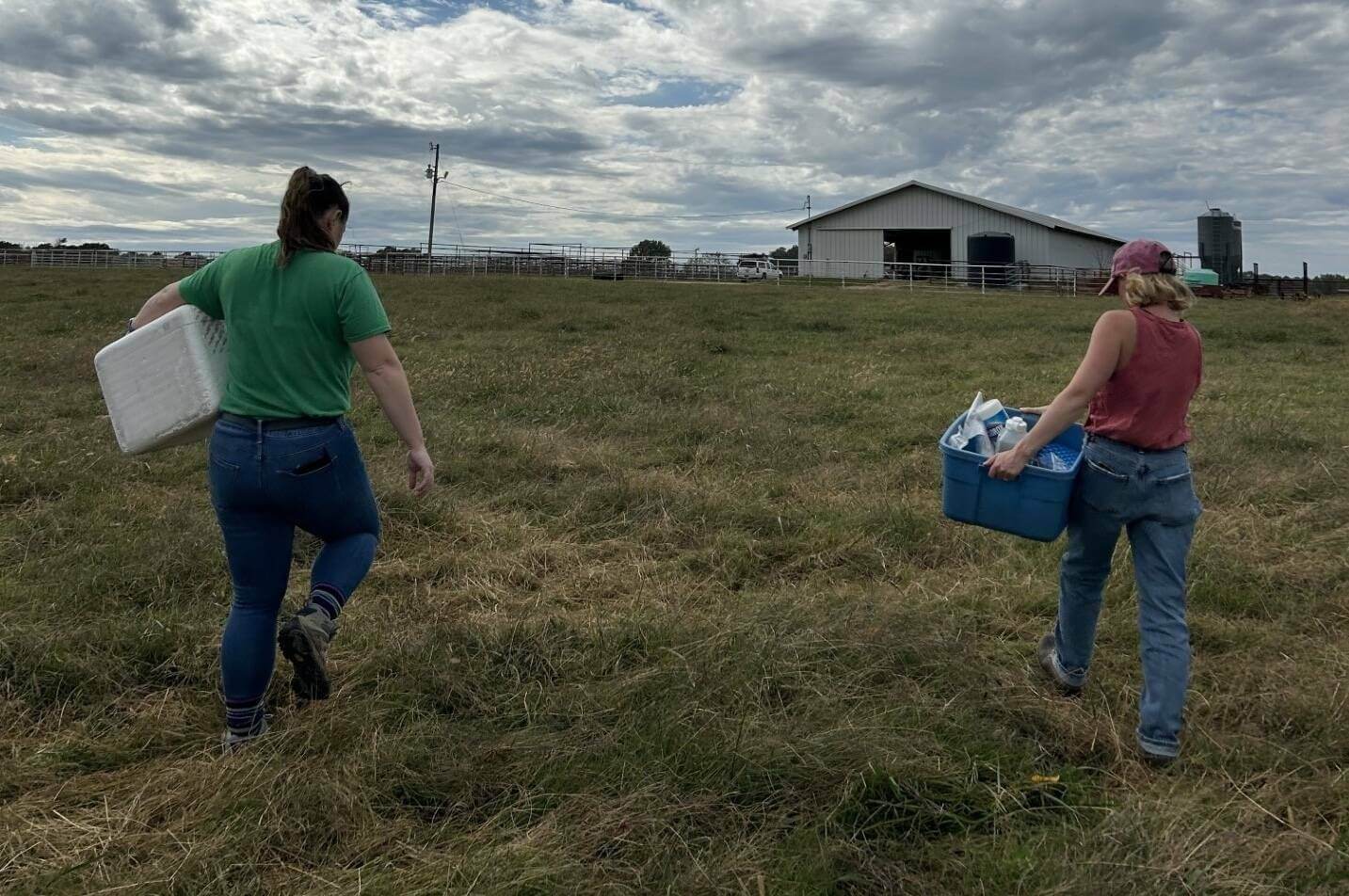In late October, partners from the Navy Entomology Center of Excellence (NECE) visited the University of Arkansas (UArk) to beta-test the REDI-NET Standard Operating Procedures (SOPs) for vertebrate field sampling. This involved UArk partners training NECE folks on conducting arthropod collections from vertebrate hosts, including manure collections, as part of the newly activated Phase III of the REDI-NET Program.
Ectoparasites, such as flies and ticks, were the main arthropods of focus for the training. Training included sample collection methods such as sweep-netting and methodological search of the animal’s body, construction of fly cartons, fly identification, manure collection from livestock vertebrates, and tick collections.
Collected ticks were sent back to NECE for processing, while manure and fly samples will be used to test new processing protocols for the REDI-NET pipeline at UArk.

The consistent collaboration and strengthening between the Gold, Silver, and Bronze Labs through training, beta-testing, and capacity building is fundamental for ensuring
the quality, reliability, and integrity of REDI-NET data.


The University of Arkansas System Division of Agriculture (UADA) is a new Gold Lab supporting the REDI-NET with the development of vertebrate sampling SOPs for collecting ticks, filth flies, and manure. Under the guidance of Dr. Emily McDermott, the UADA team is a critical partner in obtaining, analyzing, and integrating high-quality remote data, developing and improving SOPs for vertebrate sampling based on user feedback, and managing databases for the early and accurate detection of disease threats.
To learn more about Dr. McDermott’s work, visit her website: https://www.mcdermottlabuark.com